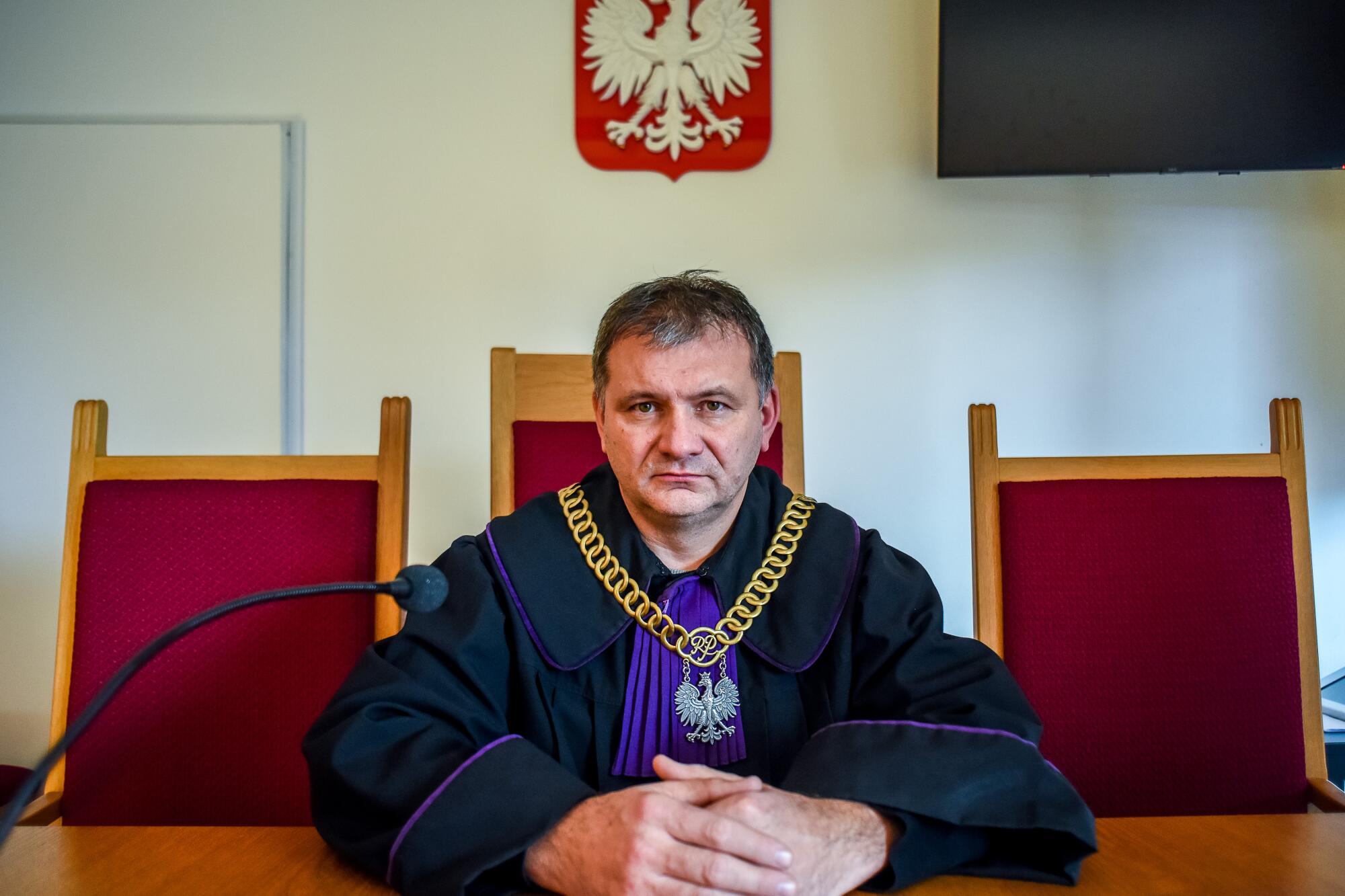
- Share via
KATOWICE, Poland — People want to kill Waldemar Zurek. They shout epithets at him on the street. News sites call him a traitor, thief and disgrace to his country. His crime, as he put it recently stepping out of a courtroom where he faced anti-government charges, is at once simple and dangerous:
“Doing my job.”
Zurek is among hundreds of judges who have marched against the harassment, discipline and dismissals they’ve encountered for criticizing Poland’s increasingly zealous nationalist government. They range from local judges to the Supreme Court president. Judges from 22 European countries joined them on the streets of Warsaw last month to oppose changes they said would erode the independence of Poland’s courts.
In the four years since the right-wing Law and Justice party was elected to power, this nation that was once hailed as a post-Soviet success story has become the object of scorn among human rights groups. Legislators have imposed restrictions on news outlets, clamped down on museums, called for the closing of its borders to Muslim refugees and railed against gay rights as a foreign “threat to Polish identity.”
The judges find themselves at the center of a battle over the nation’s — and, to a wider extent, Europe’s — democratic ideals in a time of resurgent populism and xenophobia.
“I don’t recognize my country,” said Zurek.
He was born in 1970 in Chrzanow, about 20 miles southeast of Katowice, to anti-communist activists. As a teenager, he spray-painted walls in his hometown with slogans against the government and state media — “Down with communism,” “Solidarity” and “TV news is lying” — and protested with revolutionary groups under threat of arrest. But Zurek is facing a different, more troubling, enemy today.
He’s changed phone numbers to avoid anonymous text messages that call him a “communist pig” who should be “sent to camps in North Korea.” At one point, he stopped going to the market with his family after receiving emails promising “two shots” to his face when he was out with his wife and two young girls.
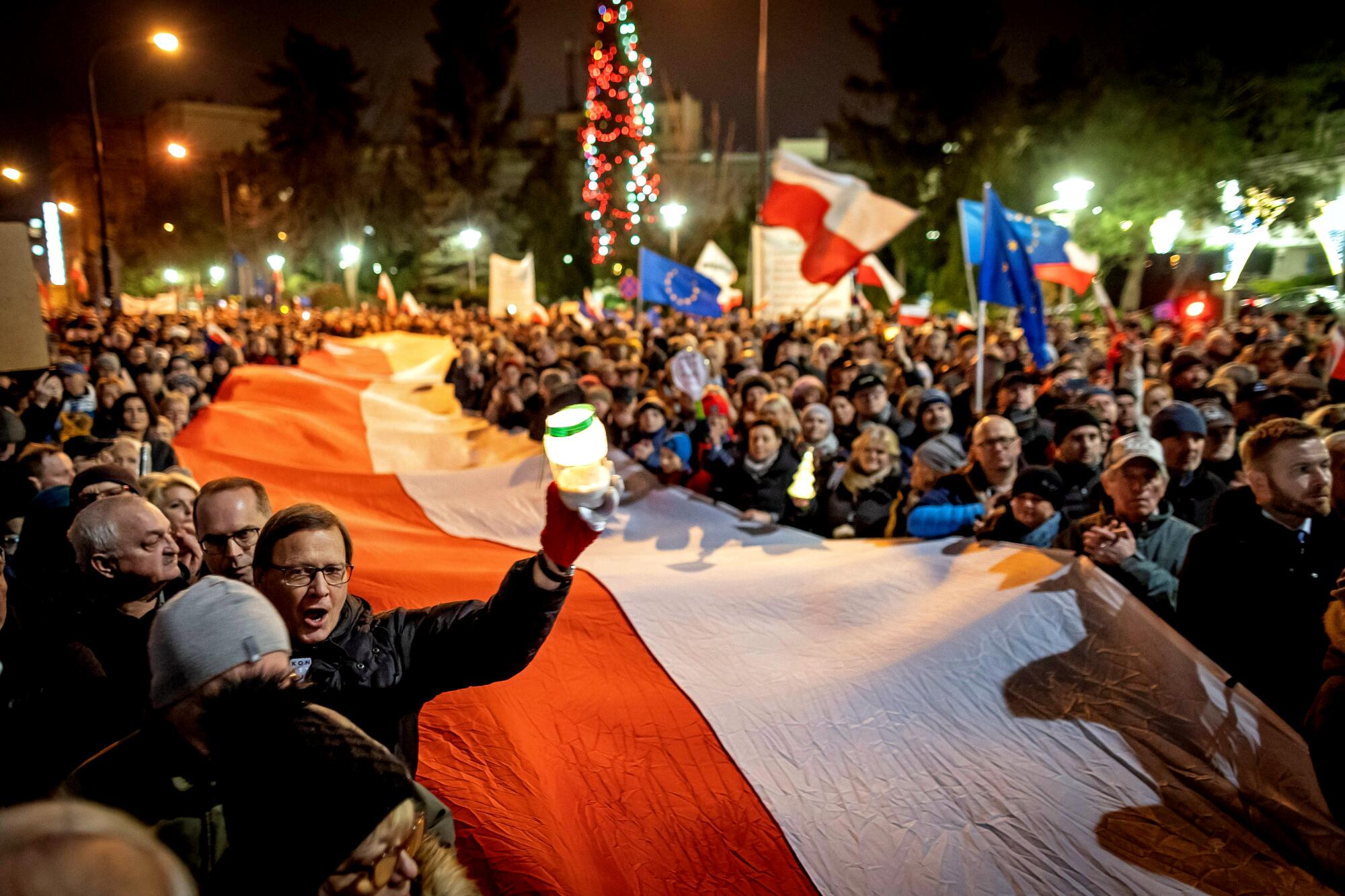
Over the years, the Law and Justice party has appointed its allies to a constitutional tribunal, taken over the body that selects new judges and attempted to purge the Supreme Court. This month, the government clashed with European Union officials after the Polish president signed a law prohibiting judges from questioning changes to the judicial system.
The party has dispatched state TV and commercials to depict judges as elite and out of touch. A prime-time TV show that debuted this year, “The Caste,” features stories of corrupt judges, while billboards describe them as thieves and violent drunkards. At least $2 million has been spent on the campaign, according to Polish media reports.
“For those Americans who are concerned about a constitutional crisis in the United States, we’ve got nothing on Poland,” said R. Daniel Kelemen, a professor of political science at Rutgers University who focuses on Europe.
“As right-wing, nationalist, populist governments have gained influence across the continent, notably in Hungary, Poland is the new battleground. There have even been suggestions of a ‘Polexit,’” he said, referring to Brexit, Britain’s departure from the EU.
It all comes as right-wing movements have made gains across Europe, including in neighboring Germany, where a racist gunman last week killed nine people.
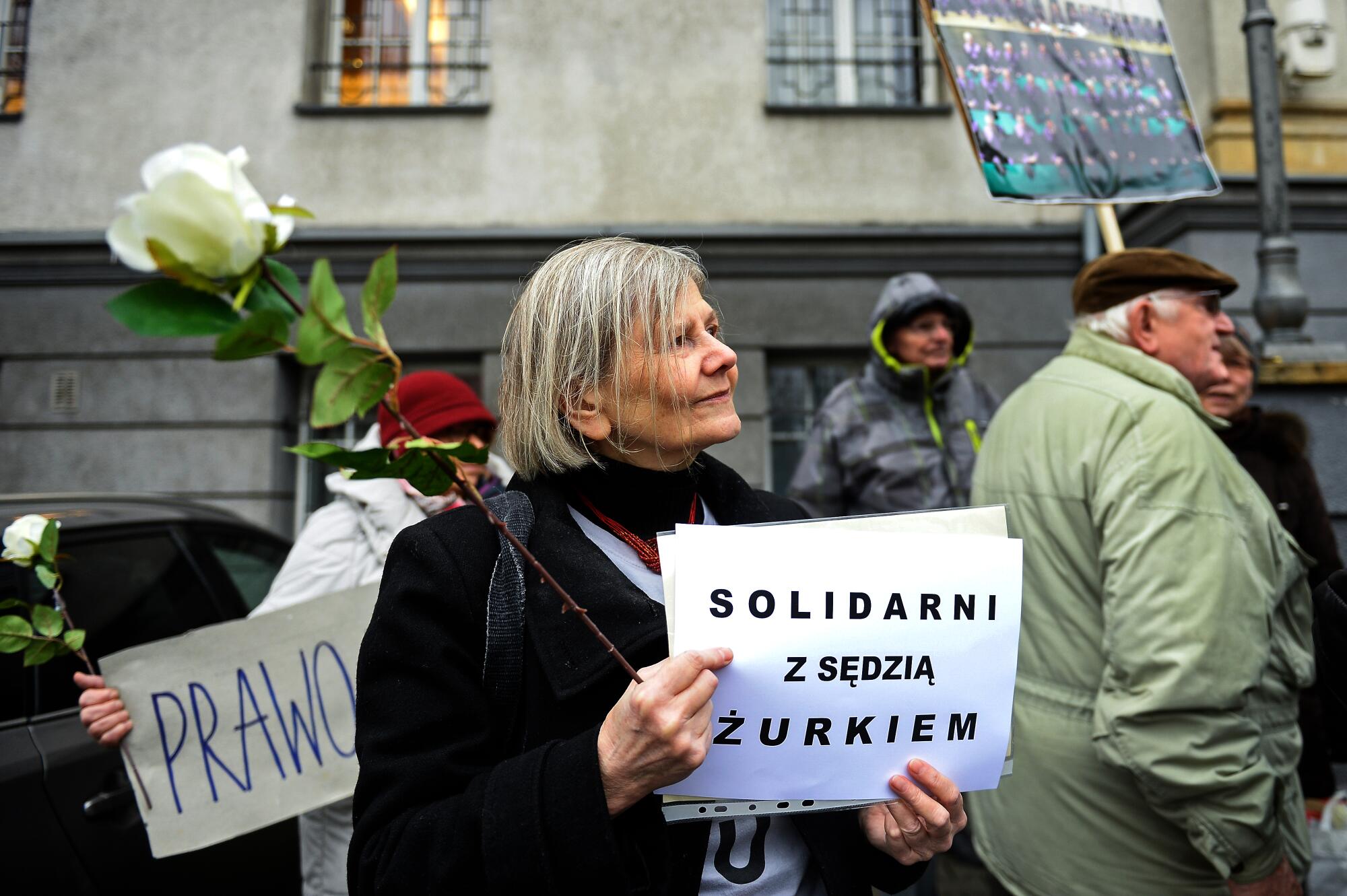
Under EU law, members are bound by legal standards that apply across the union. The EU, which Poland joined in 2004, has sued Warsaw repeatedly for tampering with the courts. Pressure has grown for the bloc to cut the billions of euros it sends each year to Poland. And the Polish Supreme Court recently declared that the country’s flouting of European law might force it to leave the EU.
When communism fell 31 years ago, Zurek enrolled in the country’s oldest university to become a lawyer. Over his 22 years as a judge in Krakow, he was hailed as a rising star for his caseloads and legal opinions, often on lawsuits between major corporations. He spent eight years on the National Council of the Judiciary, which appoints judges and reviews complaints about them, before he said the ruling party forced him out and installed its allies. The country’s major legal newspaper, Dziennik Gazeta Prawna, once named him the “best judge of Poland,” and his name was floated to join the Supreme Court.
Most of that was before the Law and Justice party won parliamentary elections, first in 2015 and again last year on a platform of reforming the court system, which it said was overburdened, inefficient and rife with communist-era holdovers. Former Prime Minister Jaroslaw Kaczynski and twin brother Lech founded the party in 2001. Lech was president when he died in a plane crash in 2010. Jaroslaw Kaczynski, who is now in Parliament, wields tremendous influence on the Polish president, Andrzej Duda, who ran for office as a party member.
“There is an ongoing war regarding the state of democracy in Poland,” said Adam Bodnar, a government ombudsman and independent human rights monitor. “We are in the last stages.”
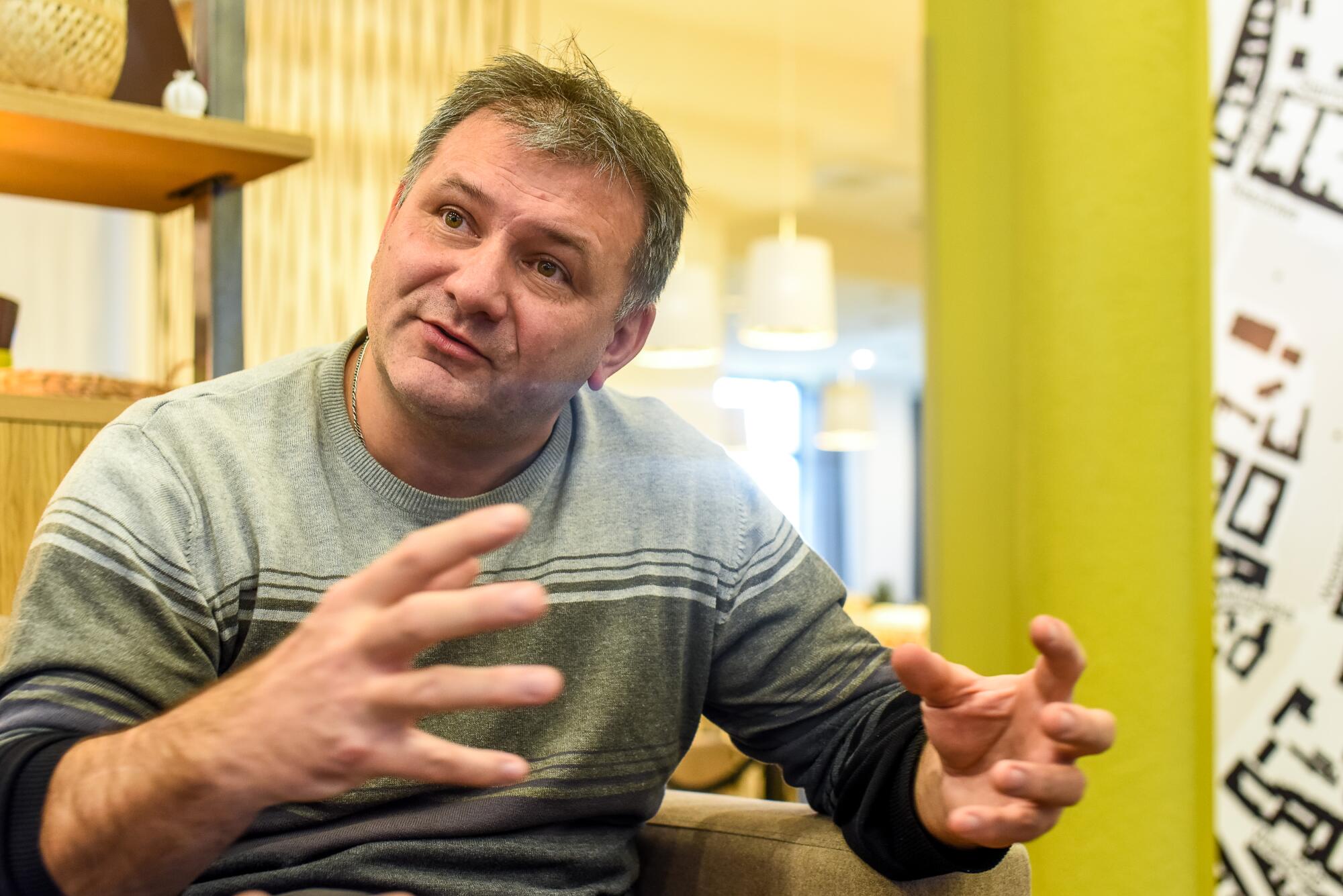
Representatives of the nation’s Ministry of Justice did not reply to requests for comment from the Los Angeles Times. In a December interview with the Polish Press Agency, Kaczynski said that “judges actually do not bear the consequences of even their most unlawful and harmful actions,” were part of a “sick system” and could be “evil.”
Deputy Foreign Minister Pawel Jablonski, who has clashed with EU officials over Poland’s judicial transformation, said in an interview that critics were “playing politics” while the government was “democratizing the courts and making them more transparent.”
“We have been accused of all kinds of crimes against democracy. It’s not true,” Jablonski said. “We want our judges to stop being political. They should be impartial.”
The words unnerve Zurek, who fears he will eventually be out of a job, or worse.
“Poland is going backward,” he said recently during a meeting in a cafe across the street from his court to avoid what he said was regular street harassment during interviews. “The government now has a totalitarian mentality.”
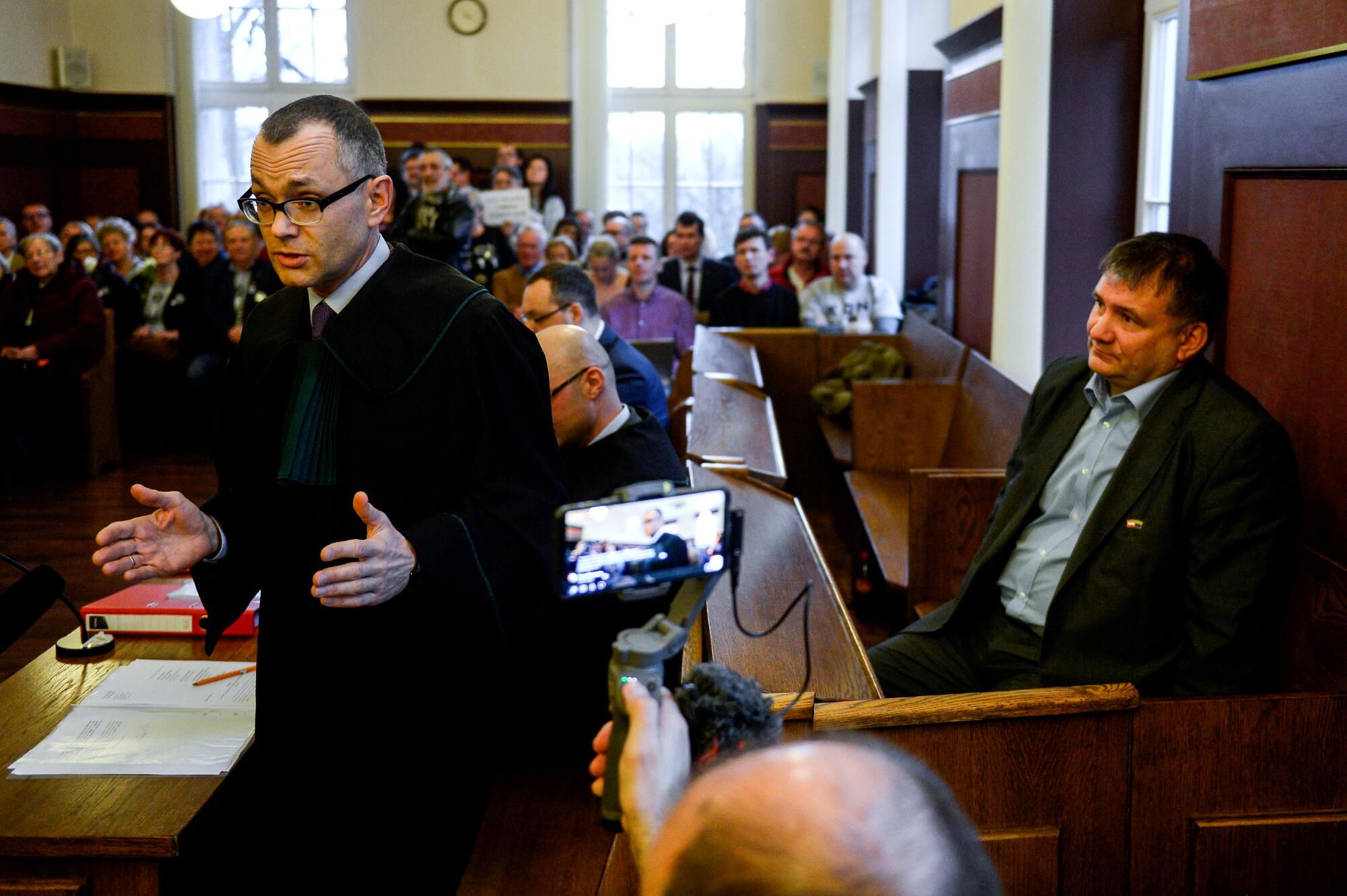
In Katowice, about an hour from his Krakow court, Zurek showed up last month on charges that he disobeyed the orders of a superior appointed by the ruling party to switch to a new court division. He has appealed the transfer.
“Some of the accusations against us judges seem from the outside like we are picking small fights,” he said in an interview. “But these are tactics the government is using to set us up to fail. They give us new responsibilities, give us big caseloads, and don’t give us adequate clerks, to set us up to fail — all because we question the pseudo-reform of the judiciary.”
He has also been investigated by the government’s anti-corruption office on suspicion of not paying taxes, including on a tractor he sold five years ago. In another case, the government charged him for a tweet last year in which he criticized the appointment to the Supreme Court of an attorney aligned with the ruling party. He’s also faced criticism for participating in a public debate on the judiciary. Once a popular lecturer at the National School of Judiciary and Public Prosecution in Krakow, he has now been banned by his court from teaching.
Dozens of demonstrators showed up in support of Zurek at his hearing, as they do at many of the court proceedings against judges that have become commonplace around the country. They held Polish flags and posters that said “wolne sady!” The phrase means “independent” or “free” courts.
“We will return to the dictatorship, because now all power will be in the hands of one party, just as it was during [communism],” said Henryk Mizerski, a 70-year-old who was part of the Solidarity anti-communist movement of the 1980s.
“This government isn’t creating anything. It’s only decomposing our law and society,” said another demonstrator, Tadeusz Kus, 60.
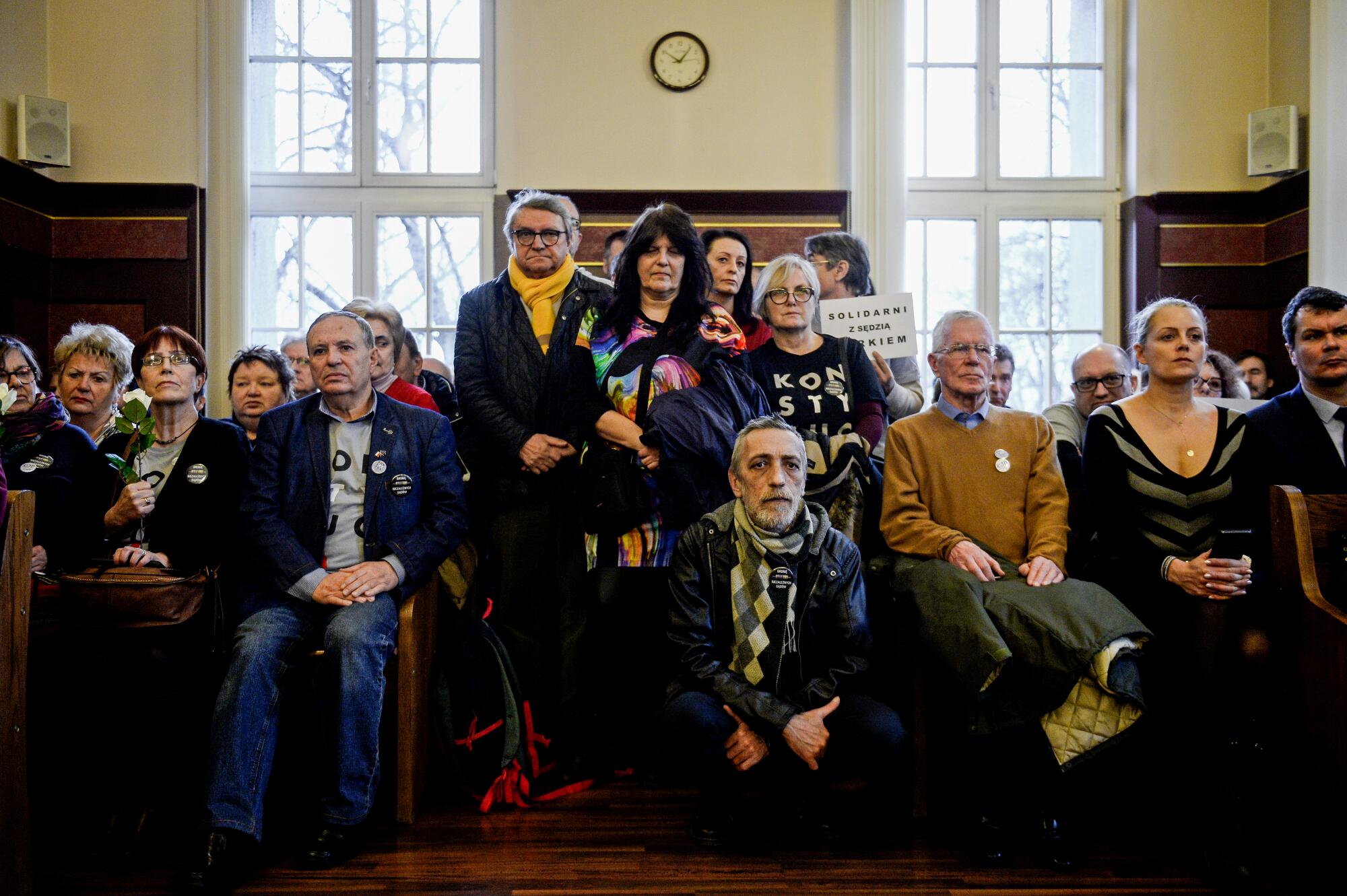
Although tens of thousands have marched in Warsaw and elsewhere over the months in support of judges, they represent a small fraction of the country’s population of nearly 38 million. Among the nation’s 10,000 judges, about 1,000 at most have spoken up publicly or attended protests over the judiciary. Judges associations, which have been unified in their opposition, say many of their members stay quiet because they fear retribution.
Early this month, after the new law banning judges from criticizing the government was signed, thousands of Poles rallied in support in Warsaw by the Constitutional Tribunal building. They held signs that read “popieram reforme sadow!” — “I support court reform!”
“Justice is the strength and the foundation of the power of the Republic of Poland,” protest leader Adam Borowski told the crowd. “If this justice is not found in the courts, our homeland will be weak.”
The Law and Justice party’s successes in elections and pushing its agenda are in part a result of a healthy Polish economy and generous social welfare programs. Hovering around 5%, the unemployment rate is at a historic low. The government, meanwhile, has spent the equivalent of billions of dollars on programs popular with poor and middle-class Poles, including a 500 zloty monthly allowance — about $126 — for each child in a family, banning income taxes for 2 million workers under 26, and promising to nearly double the minimum wage by 2023.
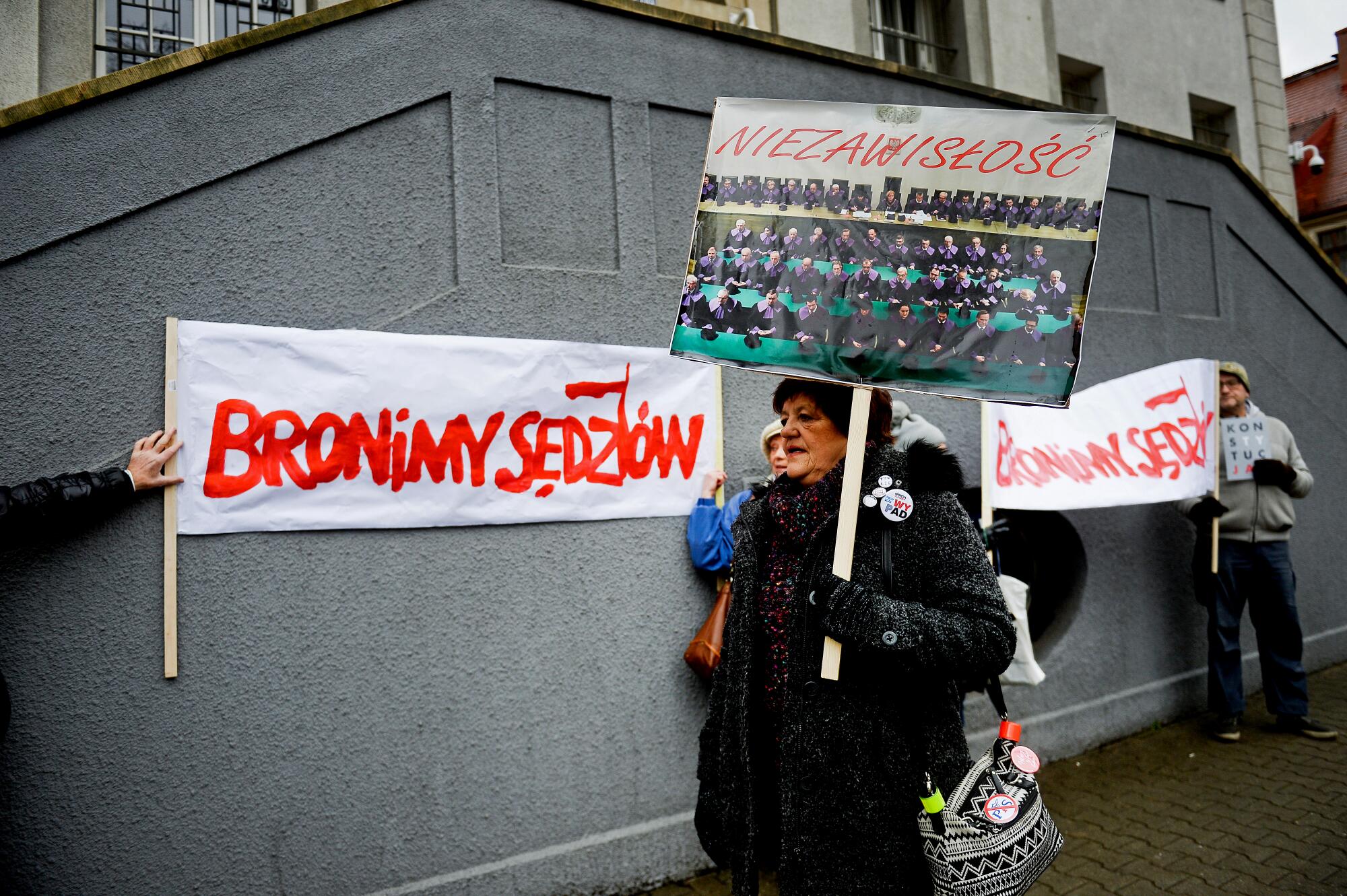
“For a family that sees itself doing better under the party, the issue of courts seems like an obscure issue that doesn’t affect it,” said Bodnar, the government ombudsman. He added that the court overhaul also had its source in real problems.
“The Polish judiciary does need substantial reform. There is a big backlog. In big cities, you may have to wait more than a year for the first hearing in a divorce case,” Bodnar said. “So when the government says there needs to be reform, people agree. But the actions the government takes are entirely different.”
Zurek, who has become accustomed to the onslaught of critics, said he feared for the future of his country and his family.
After a demonstration last month in Krakow where he spoke, a drunken man cornered Zurek to yell at him about his speech, saying it was wrongly anti-government. Zurek said the moment reminded him of another incident that shocked the nation. In January 2019, Pawel Adamowicz, a liberal mayor of the northern city of Gdansk and well-known government critic, was stabbed to death on stage during a charity concert by a man who opposed his political views.
The government blamed the crime on a deranged man with a checkered past. Activists questioned whether bitter political divisions and the demonizing of government critics in the media played a role in the hatred.
“I feel we judges are heading toward the same situation now,” Zurek said, clutching a cross with a Polish eagle that he wears on his neck. “I pray nothing happens to me.”
More to Read
Sign up for Essential California
The most important California stories and recommendations in your inbox every morning.
You may occasionally receive promotional content from the Los Angeles Times.











